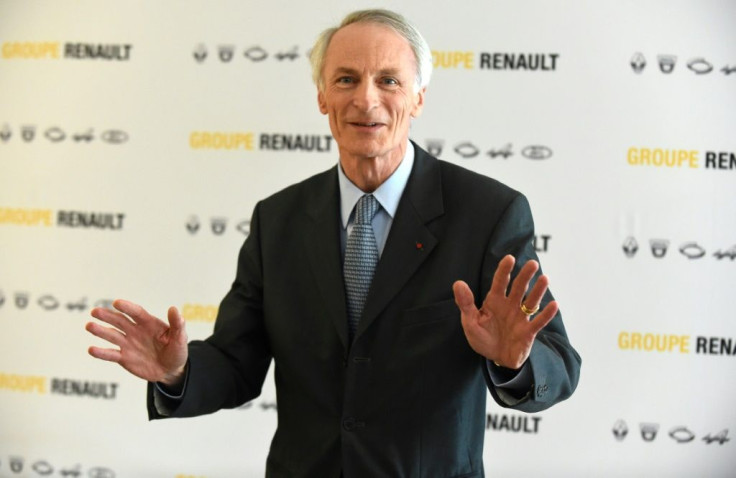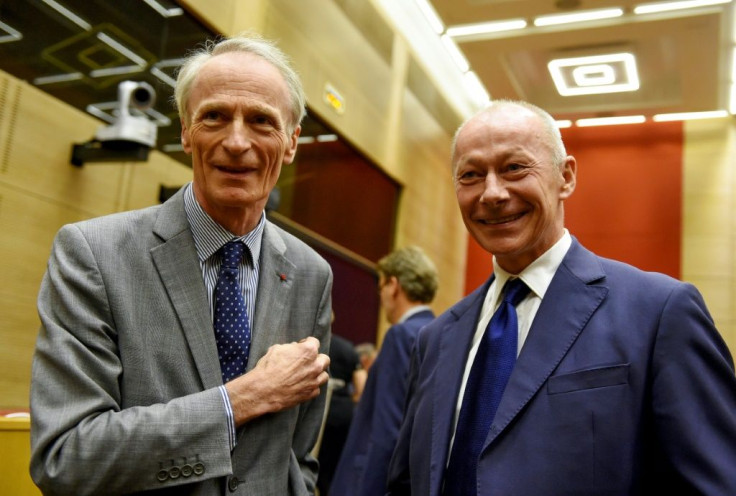Renault Ousts CEO Bollore, Hoping To Close Out Ghosn Era

French automaker Renault sacked its chief executive Thierry Bollore Friday, the latest turbulence to rock the company since his predecessor Carlos Ghosn was arrested on financial misconduct charges last year.
In a terse statement, Renault gave no reason for Bollore's ouster nine months after he was named to follow Ghosn, who had been preparing to hand him the company reins.
The move comes just days after the company's Japanese alliance partner Nissan named a new CEO after the resignation of his predecessor who stepped down last month.
In an exceptional board meeting Friday, "the board of directors decided to end the mandate of Mr Thierry Bollore as chief executive officer of Renault... with immediate effect," the company said.
"This is how companies work. There are times when it is useful for a company to make a fresh start. It's nothing personal," board chairman Jean-Dominique Senard told reporters at Renault's headquarters outside Paris.
"The revival of the alliance (with Nissan) was necessary," he said.
Renault and Nissan were plunged into turmoil after Ghosn's arrest last November, prompting investigations of governance failings and deep revamps of their management structures.
Media reports had speculated that Nissan executives were demanding that heads also roll at Renault over claims that Ghosn under-reported millions of dollars in salary as head of Nissan and used company funds for personal expenses.
Ghosn has denied any wrongdoing, but both companies ousted him while he remains in Japan awaiting trial.
Speculation of Bollore's departure increased after French daily Le Figaro reported on its website late Tuesday that he had a difficult relationship with Senard.
A source close to the company told AFP that Bollore had made his case at the board meeting, where "he was blamed for management and performance failings".
"There was a vote. No board member opposed his dismissal, and there were very few abstentions," the source said.

'Always been loyal'
Bollore, a 56-year-old with long experience in the auto industry, rejected claims of performance failings, saying in an interview published ahead of the meeting that his only fault was being named deputy CEO by Ghosn in February 2018.
"The brutality and the totally unexpectedness of what is happening is stunning," Bollore told financial daily Les Echos.
"I got in a plane in Tokyo on Tuesday night (and) when I landed in Paris on Wednesday morning, I saw in the press that Jean-Dominique Senard, who up to now always said there wasn't a hair's breadth between us, wanted my departure," he said.
"I have always been loyal to him," he added.
"It's all the more inexplicable because Renault is one of the very few automakers which hasn't had to issue a profit warning despite the crisis the industry is going through," he said.
Bollore also urged the French state, which owns 15 percent of Renault, to halt a "coup" that risked destabilising the automaker further.
Finance Minister Bruno Le Maire appeared to side with Senard in a brief statement after the meeting.
"We want the alliance to begin a new chapter, with a clear industrial strategy to address significant challenges, like autonomous and electric vehicles," he told reporters.
Turbulent year
Senard was brought in from tyremaker Michelin as board chairman, tasked with stabilising Renault and its alliance with Nissan and Mitsubishi in the wake of Ghosn's arrest.
His job was complicated by declining profits, in part due to falling sales at Nissan, in which Renault owns a 43 percent stake.
And despite Renault's leading position in electric vehicles, Senard is also grappling with the industry's need to cut carbon emissions, and the push by all automakers to bulk up in the face of slumping demand and fierce competition.
That led Renault to pursue a merger with Fiat Chrysler earlier this year, which would have created a globe-spanning behemoth producing 8.7 million vehicles a year.
But the project foundered, and Senard blamed the French government for blocking the deal because it did not involve Renault's Japanese partners, who were reportedly furious at being kept in the dark about the Fiat talks.
© Copyright AFP 2024. All rights reserved.





















